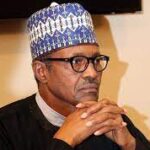By Hassan Zaggi
The COVID-19 vaccination in Borno is currently suffering huge setback due to lack of prompt payment of allowances to the health workers/vaccinators, The AUTHORITY findings have revealed.
Borno state is among the states with least number of people that have taken the COVID-19 vaccine in the country.
The state has, so far, vaccinated only 6-7 per cent of its eligible population with the vaccine.
Some of the vaccinators interviewed by our Correspondent in the state disclosed that their morale is dampened due to the lack of prompt payment of their allowances, especially those who are being paid by the federal government.
Findings showed that there are two categories of the COVID-19 vaccinators in the state. One of the category are those being paid by development partners while the other category are those being paid by the federal government.
Further findings, however, revealed those who are being paid by the federal government don’t receive their allowances as at when due. It takes over three to four months before they get their allowance.
A visit to some vaccination centres in Jere local government area and Maiduguri Metropolitan Council (MMC) of Borno state revealed that most of the vaccinators don’t go to the vaccination sites everyday due to the lack of transport money.
A senior health official in the state who pleaded anonymity because she don’t have the authority to speak on the matter said: “We are having problem with our vaccinators because they don’t come everyday for the vaccination exercise. But you don’t blame them because how can someone continue to work for over three months or more before he is being paid. Most of them are applicants or even university students who are currently on strike but are doing this ad-hoc work so that they can get something. If you don’t pay them regularly, how do you expect them to transport themselves to the clinic to get the vaccines and further go to the vaccination sites.
“Those who are being paid by partners have no problems because they get their allowances as at when due. But those paid by the government are finding it difficult to resume to work everyday. This is causing huge setback on the COVID-19 vaccination exercise in the state. “
She, therefore, called on the federal government to consider paying the allowances promptly to enable the vaccinators do their work to improve the uptake of the vaccine in the state.
One of the vaccinators who pleaded not to be named when responding to questions from our Correspondent at one of the Clinics in Maiduguri Metropolitan Council said: “I got my allowance only once this year. This is seriously affecting us because we don’t always have transport to come to work.
“Yes, this is affecting the vaccination coverage because how can one work for months without pay and you expect the person to keep coming every day. The government should assist us by paying the allowances regularly.”
However, responding to the alleged delay in the payment of the allowances for the COVID-19 vaccinators, the Health Manager at the United Nations Children Fund (UNICEF), Borno office, Dr. Clement Adams, called on vaccinators across the state to be patient because the delay is caused by bureaucratic bottlenecks.
“I am not holding brief for the government nor am I holding brief for anybody. But the truth is this, money is not always enough for the problems we face.
“Yes, there are challenges with availability of money. It is not just the availability but the release and timeliness of the release.
“The money could be available but the procedure and the bureaucratic nature for it to be release also delays. So these delays are viewed by people sometimes wrongly because there are administrative bureaucracies before money is released for people to be paid.
“So, sometimes the bureaucracies also delay the money from being released. It is about how people have interpreted the bureaucracies. But the timeliness in paying is very important.”
While calling on all relevant bodies and government officials involved in the payment of the vaccinators to ensure timely release and prompt payment, the UNICEF Health Manager, also called on Nigerians to see the work as part of sacrifice they are making for humanity.
“We want to encourage everybody that is part of all these that timeliness in release of money is important. If that is not done, the timeliness in also explaining is also important.
So, we may be thinking that the money is available but the government is sitting on it, but absolutely may not be available.
“Sometimes sacrifices are also important. Let us all agree that it is about humanity and we want to save lives. Sometimes let us be patient in trying to over push.
“I am not saying that people should not be paid, but I am also saying patience in following these things is also important. It is about life we are saving. Life is more important than anything else. We need to be patient because there are administrative processes and procedures which are not optimum.
“So, we need to be patient. Think of it, the enormity of what is to be done, is not possible to say that money is just laying down. Sometimes some of these monies are in the transit, bank transfer challenges, sometimes it is bureaucratic challenges.
“But we want to encourage people to improve on these deficiencies that exist so that we can work together and see how we can help to do this.”


